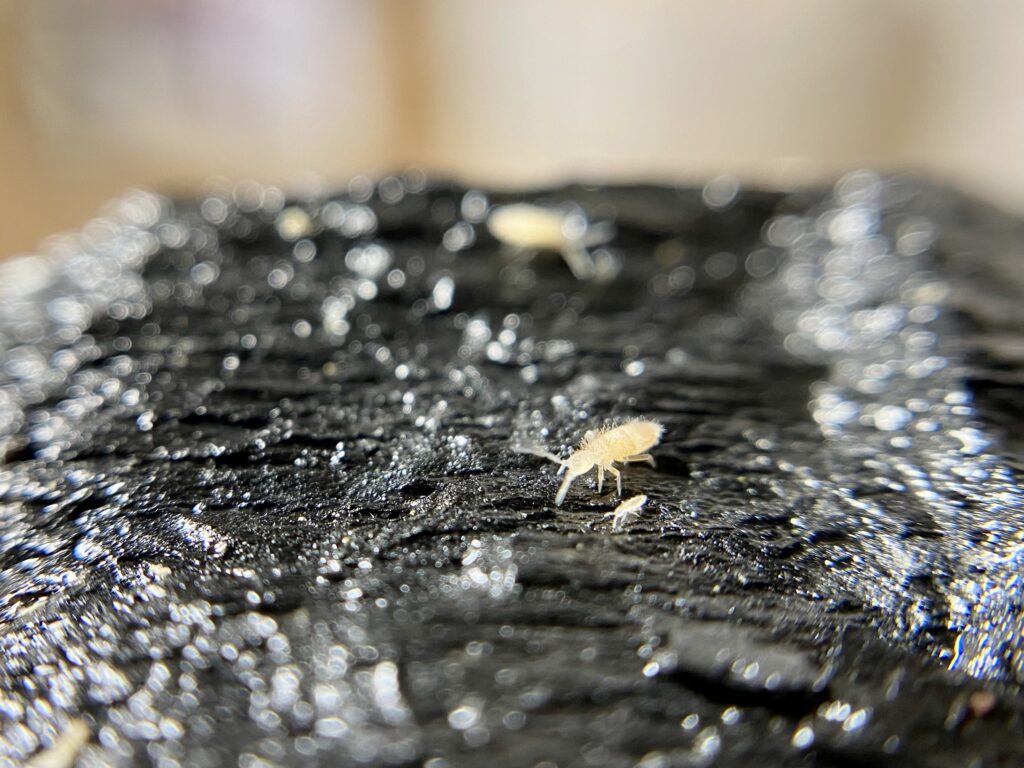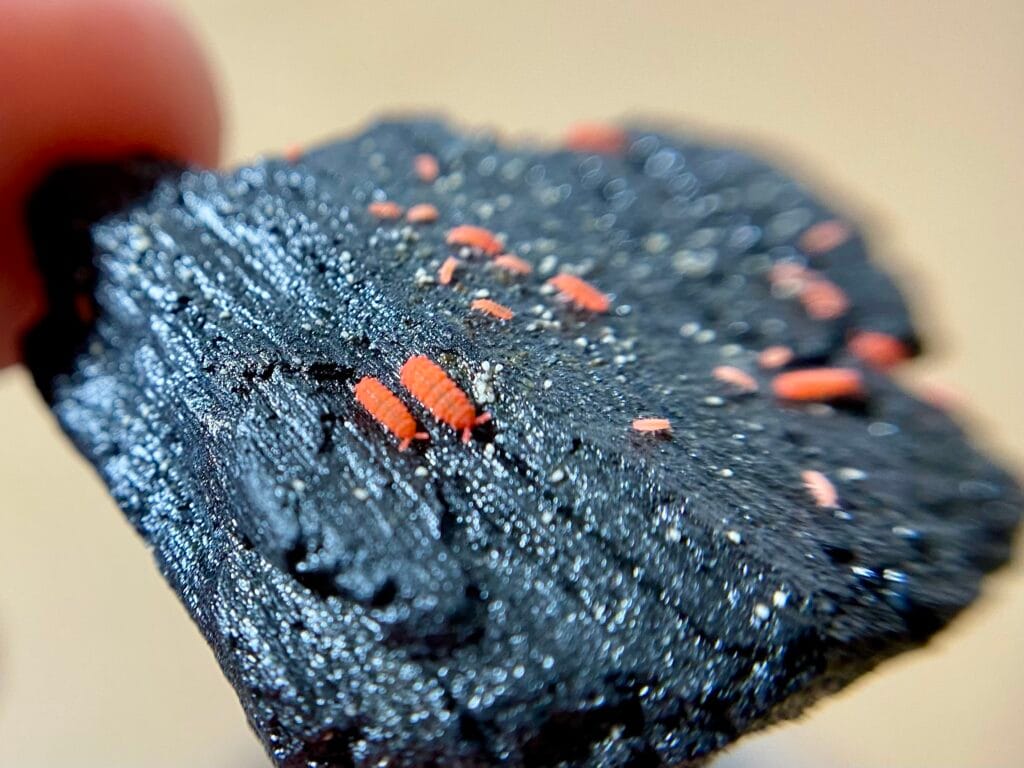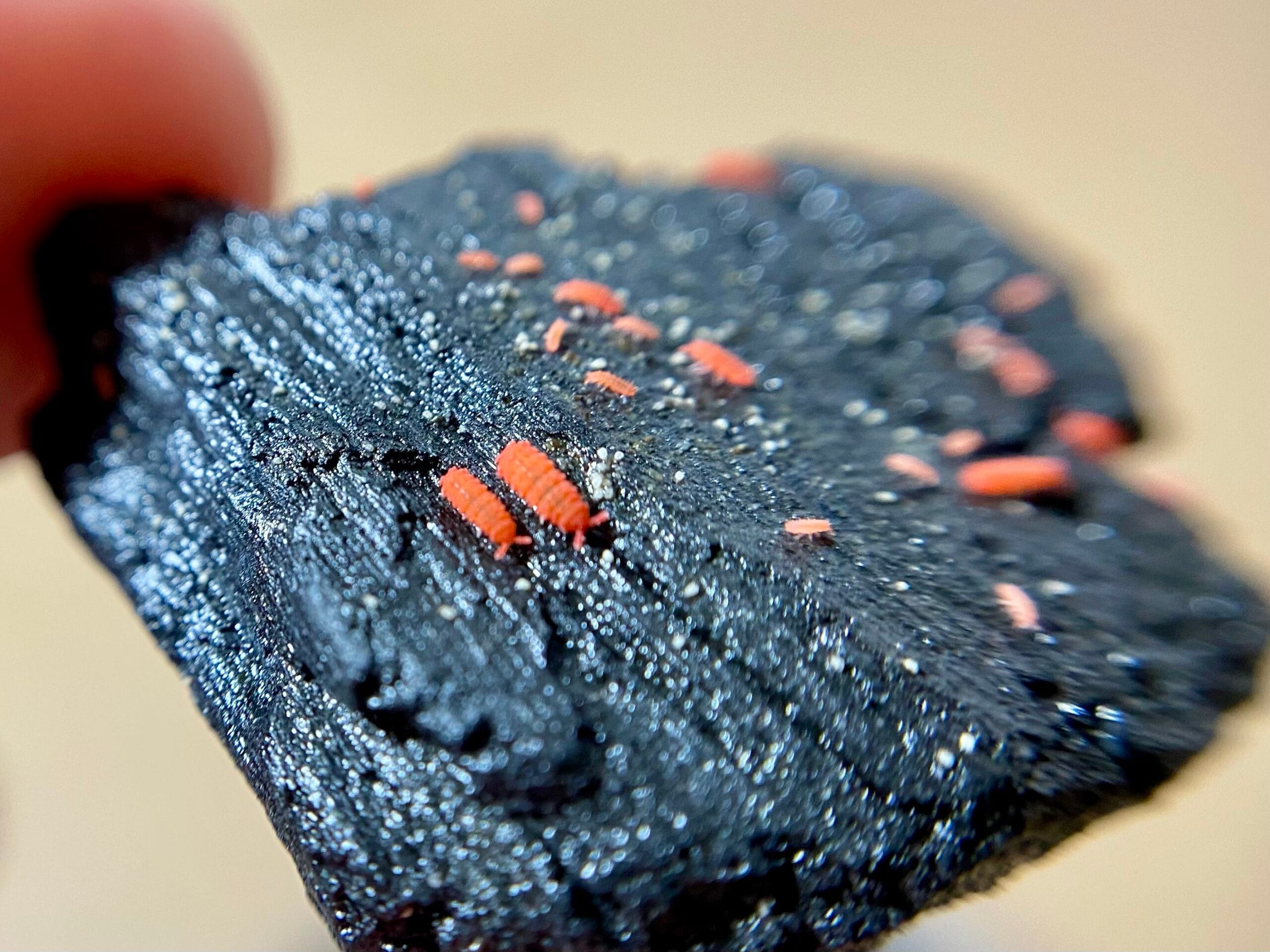Springtails might be tiny, but they play a big role in the health of your terrarium. Whether you’re creating a bioactive setup or just want to keep your mini jungle clean and balanced, these microscopic helpers are your new best friends.
In this beginner’s guide to springtails, we’ll cover everything you need to know to get started, including what springtails are, why they matter in terrariums, and how to care for them long term.

What Are Springtails?
Springtails (Collembola) are minuscule arthropods that thrive in moist environments. They get their name from a tail-like appendage called a furcula, which launches them into the air when disturbed.
They’re completely harmless to humans, pets, and plants, and incredibly helpful in bioactive terrarium ecosystems.
Why Add Springtails to Your Terrarium?
These tiny decomposers act as a natural clean-up crew:
🌿 Break down organic waste such as dead leaves, mould, and decaying debris
🌿 Help prevent mould outbreaks by feeding on mould spores
🌿 Aerate the substrate, improving airflow and root health
🌿 Support bioactive systems by maintaining balance in closed and live setups
🧪 Springtails are even used in scientific research as indicators of soil and environmental health.
Which Type of Springtails Should You Use?
For most beginners, temperate white springtails (Folsomia candida) are the best place to start due to their fast breeding and low maintenance needs.
For those wanting a more premium option, tropical springtails (such as Red Thai Springtails – Lobella sp.) are a great choice! Tropical reds are a reddish-orange springtail that are slightly larger, and thrive in warm, humid environments.
You can find both types in our Bioactive Supplies section, ready to introduce to your setup.

How to Introduce Springtails to Your Terrarium
- Prepare the culture – Gently shake or swirl the container to loosen the springtails.
- Add to the terrarium – Add some water and pour them in, or grab a piece of charcoal and tap on the side of your terrarium. Add them near the moistest area of the substrate.
- Mist lightly – This helps them disperse and settle.
- Seal the terrarium – For closed setups, pop the lid back on to maintain humidity.
How to Care for Springtails
Once established, springtails are easy to maintain:
💧 Humidity – Keep the substrate moist with occasional misting.
🌡️ Temperature – Ideal range is 18–24°C (temperate); tropical species prefer warmer.
🍽️ Feeding – Springtails mainly feed on mould and decaying matter. Only provide a tiny pinch of food if your setup is very clean.
🔄 Population control – Colonies naturally adjust to available food and space
🐜 If springtails disappear, it’s often due to dry conditions or lack of organic material.
Can You Culture Springtails Separately?
Yes! Many hobbyists culture springtails to add them to new terrariums as needed. Here’s how:
- Use a plastic container with a lid
- Add 2-3 cm of charcoal or coco coir
- Introduce springtails and keep the substrate moist
- Feed occasionally with a pinch of yeast or fish flakes
- Harvest by tapping or scooping out springtails with a spoon
- Avoid overfeeding, as excess food can cause mould or foul smells. A tiny amount goes a long way.
Where to Buy Springtails in Australia 🇦🇺
You can find live springtails and other bioactive helpers in our shop. All cultures are packed fresh and shipped Australia-wide, suitable for terrariums, vivariums, and isopod setups.
🧠 Frequently Asked Questions About Springtails
Can a terrarium have too many springtails?
Not really. Springtails self-regulate based on food and humidity levels. A sudden population boom usually means there’s plenty of decaying material.
Will springtails escape from a terrarium?
Not in a sealed setup. In open terrariums, a few may wander — but keeping things moist and enclosed helps them stay put.
Do I need to feed them?
In most cases, no. They survive on decaying matter. If you’re starting fresh or the setup is very clean, feed them lightly every few weeks.
Are springtails the same as mites?
No. Springtails are beneficial decomposers. Mites vary — some are pests. Springtails hop when disturbed, while mites move slowly.
Can springtails live without isopods?
Yes. They’re often paired with isopods but don’t require them. Springtails thrive on their own in balanced, humid environments.
Will springtails get rid of mould completely?
Springtails help control mould by feeding on spores, but they work best as part of a balanced setup with proper airflow, substrate, and moisture control.
Final Thoughts: Are Springtails Worth It?
Absolutely. Springtails are one of the easiest and most effective ways to keep your terrarium clean, balanced, and low-maintenance. Whether you’re setting up your first glass garden or managing multiple builds, these little decomposers are an essential part of any bioactive ecosystem.
Explore our range of DIY Kits, Springtail Cultures, and other bioactive supplies to get started.
🔗 View dedicated care guides: Care Instructions


Leave a Reply